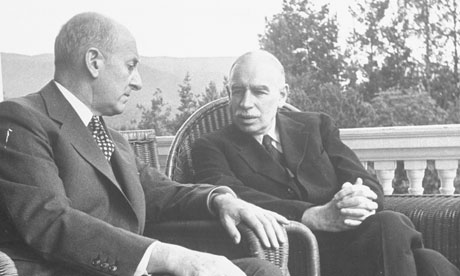The annual meeting of the International Monetary Fund was a dismal affair. Ministers arrived in Washington with the global economy drifting towards a currency war and they left town having done nothing to stop hostilities breaking out. The co-operation that was so evident in October 2008, when the banks were falling like ninepins, was nowhere to be seen.
It seems that policymakers cope well with a crisis but find it hard to agree once the immediate threat has gone away. The brutal reality of this year's gathering was that structural flaws in the system of global economic governance mean little can be done to resolve the dispute between the US and China.
It has taken the US a full 66 years to get it, but Keynes was right. When there are imbalances in the world economy, both creditor and debtor nations need to adjust their policies. The system the Americans insisted upon at the Bretton Woods conference in 1944 put all the burden on the debtor countries. Surplus countries are not obliged to do anything. This, as Keynes realised, was a recipe for trouble and so it has proved.
The imbalances in the global economy were at the root of the financial crisis in 2007, because the surpluses from China (and other countries running trade deficits) had to find a home. They were accommodated by the west's financial markets, which used the hot money to fund asset-price booms, developing a range of esoteric investment vehicles in the process.
http://www.guardian.co.uk/business/2010/oct/11/imf-talks-currency-wars
US treasury secretary Henry Morgenthau, left, and John Maynard Keynes conferring during the Bretton Woods conference to plan for postwar reconstruction. Photograph: Alfred Eisenstaedt/Time & Life Pictures/Getty Image